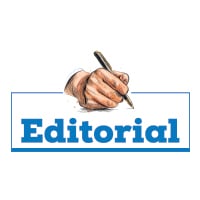
A glimmer of hope
The announcement of a change of command in the Pakistan Army’s leadership has been hailed across the country – from the corridors of power to the proverbial man on the street.
As the current Chief of Army Staff (COAS) General Qamar Javed Bajwa prepares to hang up his boots on November 29 after a six-year stint in the country’s most powerful office, he leaves behind a highly divided and politically polarized country teetering on the brink of default on its foreign exchange payments.
This is the opposite of what he had inherited when his predecessor, General Raheel Sharif, handed him over the command of Pakistan’s most powerful and respected institution – the Pakistan Army.
At that time, the Pakistan Army was at the zenith of its popularity, particularly for its successes in the war against terrorism, starting an anti-corruption drive within the institution and supporting a similar campaign in the civilian domain.
General Bajwa did carry the momentum forward, but towards the fag end of his career, he lost the plot.
General Bajwa’s abrupt decision of transforming the institution into an “apolitical and neutral” entity is largely being blamed for the country’s current political and economic mess.
Even the Pakistan Army as an institution became controversial as people reacted to the way graft cases against some of the most corruption-tainted politicians collapsed and they got back into power. These developments widened the trust gap between the masses and the ruling elite.
But now it is the time to pick up the pieces. The nation is once again looking towards the Pakistan Army and its new leadership to help bring political stability in the country, which cannot be done until the institution returns back to its traditional role of acting as a stabilizing factor for the state and the strongest guardian of the country’s core national interests, including the Kashmir cause.
The COAS-designate General Asim Munir and Chairman of the Joint Chiefs of Staff Committee (CJCSC) General Sahir Shamshad Mirza both enjoy tremendous goodwill across the political divide. And that’s the reason expectations are huge from the new military leaders.
Although it is not part of the new-COAS’ job description, the biggest and most pressing item on his list would be the country’s continuing political deadlock and the simmering instability.
This has emerged as the biggest national security risk in recent months as without addressing it, neither a roadmap of economic recovery can be given and implemented, nor foreign relations can be managed.
Stability and unity of action on all these fronts are directly linked with the country’s defence as they fall under the broader ambit of national security. Therefore, defusing political tensions and breaking the deadlock is of prime importance and the new COAS will be forced to play his role in this regard.
Yes, when politicians, as per their tradition, are unable to resolve their differences inside or outside the parliament, it becomes the responsibility of the Pakistan Army to help them find a middle-ground and ensure that they chalk out a roadmap that can take the country forward.
In a developing country like Pakistan, this is a justified demand and expectation from the country’s most disciplined, powerful and modern institution.
The Pakistan Army should not yield to the pressure, propaganda and demand of those foreign and local players, who want to curtail and contain its role in the name of democracy.
Pakistani democracy needs the support of all the state institutions, including the Pakistan Army, to become pro-people, honest and genuinely representative of the people.
For the vast majority of Pakistanis, the support of the Pakistan Armed Forces is vital for the success of the project called democracy in the country that needs to be freed from the clutches of dynastic politicians, elite capture and the corrupt.
Therefore, the army should religiously stick to its traditional role and continue to help the weak civilian institutions improve, reform and deliver. The political parties should also need to review the ground situation objectively and instead of falling prey to the verbosity of civilian supremacy, they need learn to work with the institutions, introduce internal democracy within their ranks and allow not just middle and lower-middle class representation in the parliament but also of the urban working class and the farmers.
As an overwhelmingly youthful Pakistani population craves for a change, the state institutions must facilitate it rather than be seen standing with the tried, tested and failed dynastic politicians. With the change of military command, there are high expectations that the institution will keep itself aligned with the aspirations of the masses in line with the demands of the 21st century rather than sticking with the old political order.









